Brazil Beef Tax Could Spare Forests
Scientists have come up with a prescription of taxes and incentives to address the Amazon rainforest’s health problems and cut greenhouse gases by encouraging Brazil's cattle farmers to make more efficient use of pasture land.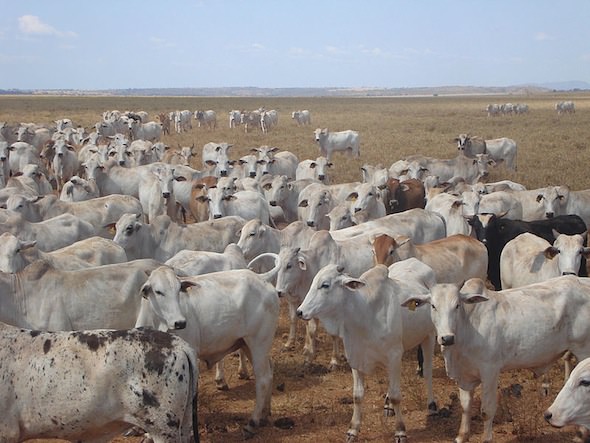
By Tim Radford, Climate News NetworkThis piece first appeared at Climate News Network.
LONDON — Scientists have come up with a new prescription to address the Amazon rainforest’s health problems: reduce deforestation more efficiently by taxing free-range beef.
Researchers at the University of California, Berkeley, and international colleagues from Australia and the International Institute for Applied Systems Analysis in Austria, make their case in the Proceedings of the National Academy of Sciences.
They argue that by taxing cattle on conventional pasture and by subsidising semi-intensive cattle rearing, Brazil could curb up to 26% of the global greenhouse gas emissions caused by the loss of forests ? which in turn adds up to about one-fifth of all human-caused greenhouse gas emissions.
Brazil is the world’s largest exporter of beef, and the second largest beef producer. The rainforests of the world are vital components of the planetary climate machine, and the growth of cattle ranching has been blamed for up to 80% of Brazil’s deforested areas, particularly in the Amazon rainforest.
Around 200 million cattle graze a quarter of the nation’s land surface, including up to 80% of recently deforested land. Between 1990 and 2010, Brazil experienced the largest net loss of forest of any country, so anything that saves forest canopy and locks away carbon benefits the whole world. The catch is that, for any solution to work, it must also make economic sense for Brazil’s ranchers.
Double productivity
The new study calculates that by subsidising more productive use of pasture – such as by planting better grasses and by better soil management – they could double the productivity, reducing the pressure to cut down more trees to create new grazing space.
If the government then also taxed the less sustainable methods of beef rearing, the nation could cut its rate of deforestation by half, and trim a quarter of the emissions from deforestation. The researchers estimate that about half of all Brazil’s pasture could be used more efficiently.
“These practices are already used commercially on some ranches in Brazil, but they are not yet competitive because of higher up-front costs, so subsidies can provide a needed boost to make the investment worthwhile,” said the study’s lead author, Avery Cohn, an independent fellow at the UC Berkeley Energy Biosciences Institute, and an assistant professor of Environment and Resource Policy at Tufts University in the US.
International context
“Our study doesn’t just ask whether policies affecting beef production will impact on deforestation. We’re the first to look at Brazil’s national policies in an international context by asking what would happen if Brazil did this, even if other countries did nothing. Can the world see benefits from what Brazil does? Our findings indicate that the answer is yes.”
An even better response in some cases, according to a study in Nature Climate Change journal, might be to let less-than-productive grazing land revert to forest cover.
James Gilroy, of the School of Environmental Sciences at the University of East Anglia, UK, and research colleagues report that naturally regenerating secondary woodland that colonised marginal pasture in the Colombian Andes could, within 30 years, accumulate significant carbon stocks, provide new habitat for biodiversity, and even help species already at risk of extinction. It would also incur minimal costs.
That region of the western Andes is what biologists like to call a hotspot ? a threatened ecosystem that is rich in endemic species. “Cattle farming ? the principal land use in the region ? provides minimal economic returns to local communities, making forest regeneration a viable option, despite weak global carbon markets,” the scientists conclude.
Your support is crucial…With an uncertain future and a new administration casting doubt on press freedoms, the danger is clear: The truth is at risk.
Now is the time to give. Your tax-deductible support allows us to dig deeper, delivering fearless investigative reporting and analysis that exposes what’s really happening — without compromise.
Stand with our courageous journalists. Donate today to protect a free press, uphold democracy and unearth untold stories.

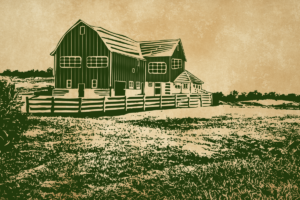
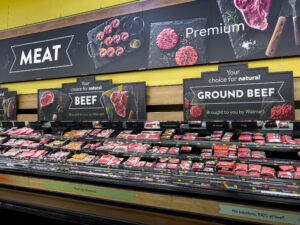
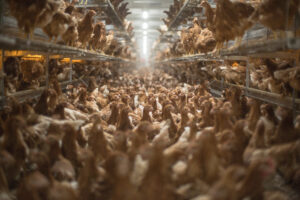
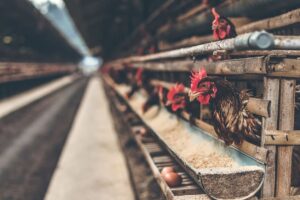

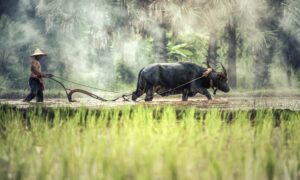


You need to be a supporter to comment.
There are currently no responses to this article.
Be the first to respond.